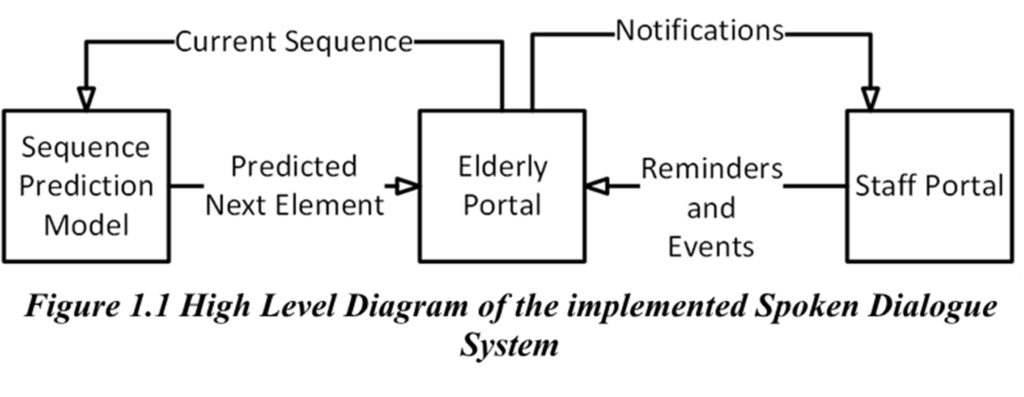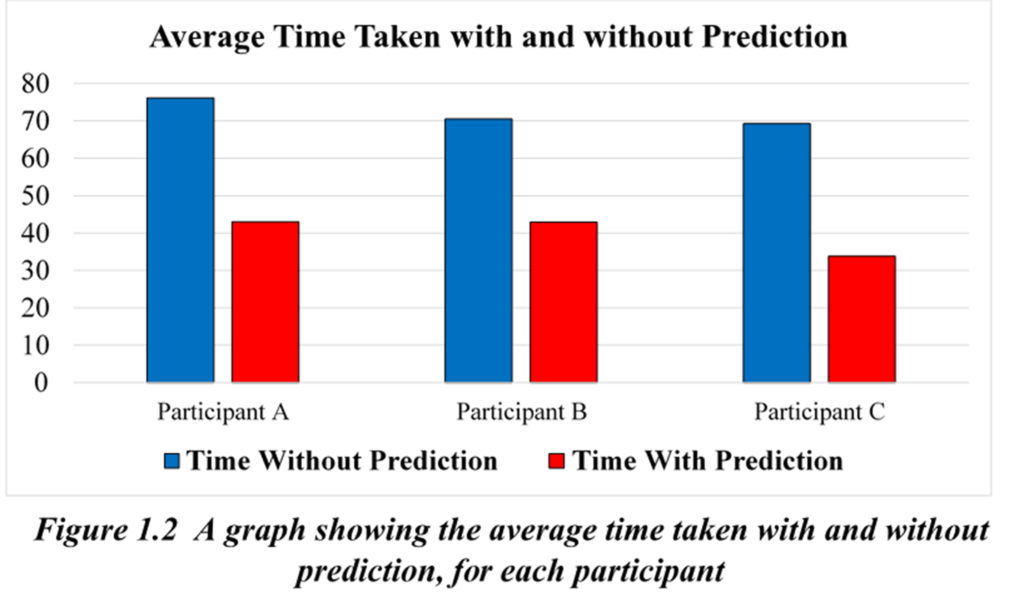
With a rapidly increasing ageing population, more older people are being referred to retirement homes. Consequently, this is placing a larger workload on the carers, nurses and allied professionals of said institutions [1]. To combat this, many robots and Spoken Dialogue Systems (SDS) have been designed, however, these are not commonly used. Studies have shown that, when compared to other age groups, older users must make a greater effort to use such systems, leaving them frustrated and less likely to use them again [1].
A generic framework for this system usability problem was designed, and a system based on this framework was implemented – focusing on both simplifying the usability (via speech recognition) and increasing its effectiveness by speeding up the chain of commands (through sequence prediction) issued by the target users. The core functionalities of the system therefore included a voice interface and machine learning to learn the sequences, over time, in which commands are given. As a useful example application in the context of a retirement home, the system built was one to create and track reminders and events. A high-level diagram explaining this system is outlined in Figure 1.

It was found that by predicting the user’s spoken commands, the process by which an older person reaches their goal is sped up, without the aid of a carer, nurse or allied professional – thus reducing frustration on the part of the user. The framework was tested with elderly users, taking careful note of the time taken to complete a task, or a set of related tasks, before and after the system learns a sequence of commands (see Figure 2). The implemented SDS was then evaluated for its usefulness in retirement homes and it was found that such a system speeds up the reminder process overall.
References
[1] N. Super, “Who Will Be There to Care? The Growing Gap between Caregiver Supply and Demand,” Washington, Jan. 23, 2002.
Student: Tristan Mercieca
Supervisor: Dr Peter Albert Xuereb
Co-supervisor: Dr Michel Camilleri
Course: B.Sc. IT (Hons.) Software Development
